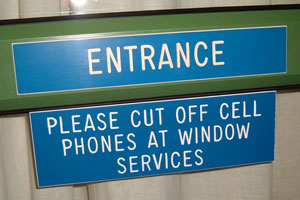|

I'm a son of the Carolinas. I was born in Greensboro, and lived withing a hundred miles of there until I was twenty-eight years old. Then, I spent thirteen years in California before moving back. Fortunately, I'm bilungual: I'm pretty equally conversant in both Western English and Southern English. I can even speak a few words of Yankee when required. Thus, I can write these columns without facing quite so much of the "We don't care how you did it back in (insert non-Southern place name)" hostility. Maybe.
One of the recurring themes of the "Eccentricities" section will be unusual aspects of language in the south (and the Twin City in specific). Newcomers can look on this as an educational resource, while natives may see it as an amusing way to discover how them weird folks in other parts of the country talk.
So let's move on with round one. Oriental vs. Asian One thing that's been really hard to get used to since I moved back east is the fact that people actually still use the term "Oriental" rather than "Asian" here. Not just in conversation, mind you, but in newspaper articles, restaurant signage, and just about everywhere else.
In California, where there is a very large and diverse Asian population, "Oriental" is viewed as rather old-fashioned and offensive, as it assumes that Asia is to the east of Europe -- Europe being, after all, the center of the known universe. It's just a word that you pretty much never hear on the west coast, although some people occasionally do still refer to the "Far East" or "Eastern culture". Here, I've even heard Asians using "Oriental".
Of course, you also get "Hispanic" more often than "Latino" here, which probably stems from the fact that Spanish-speaking immigrants on the east coast were historically more likely to come from the Carribean than from what we call Latin America.
At least, though, the newspapers no longer say "Jewess" or "Negress" as they did 75 years ago. Conjugating Favor, Cutting and Pasting: If I told you your favored your mother, what would you think I meant? In most parts of the country, it would probably mean I thought you honored her or behaved in a way that would make her proud. Not so in the south. Here, it means simply that you look like her. Along with "cut off the lights" (which means to turn them off, not to attack the cord with scissors), "favor" is one of the most misuderstood conversational terms arounhd these parts. And no, there's not really anything about paste in this section. Freeway vs. Highway (or Interstate): In California (and many other parts of the country), a limited-access multi-lane road is called a "freeway". In some quarters, "expressway" is used interchangeably, but purists know that there are some subtle differences between the two. Around here, though, any such road is almost universally referred to as "the interstate", whether or not it's an actual signed interstate highway. I surmise that the difference goes back to the time when most limited-access roads in the south actually were part of the interstate highway system (as opposed to the US or state highway systems). In places like California, this was not necessarily the case, even early on, so the more generic term took hold. Allternately, southerners often refer to "the superhighway" or just "the highway". The former was a very common term for these roads in their early days, but the latter is just a little too vague for my taste. Got Your License? Let Me See 'Em... This one baffled me even as a 16-year-old in Greensboro. The day I got my driver's license, one of my aunts called and asked me "Did you get 'em?" I had no idea what she was talking about at first. Eventually, it dawned on me that she was talking about my license, and that she was referring to it as a plural simply because the word ended in an "s" sound. I thought it was just one of Aunt Agnes' quirks until I began noticing that it was fairly common around here, even among educated people who presumably should've known better. I've heard everyone from bankers to lawyers to teachers refer to a single license as a plural, and I still just don't get it. I'd be very much interested in knowing how widespread this phenomenon is.
|